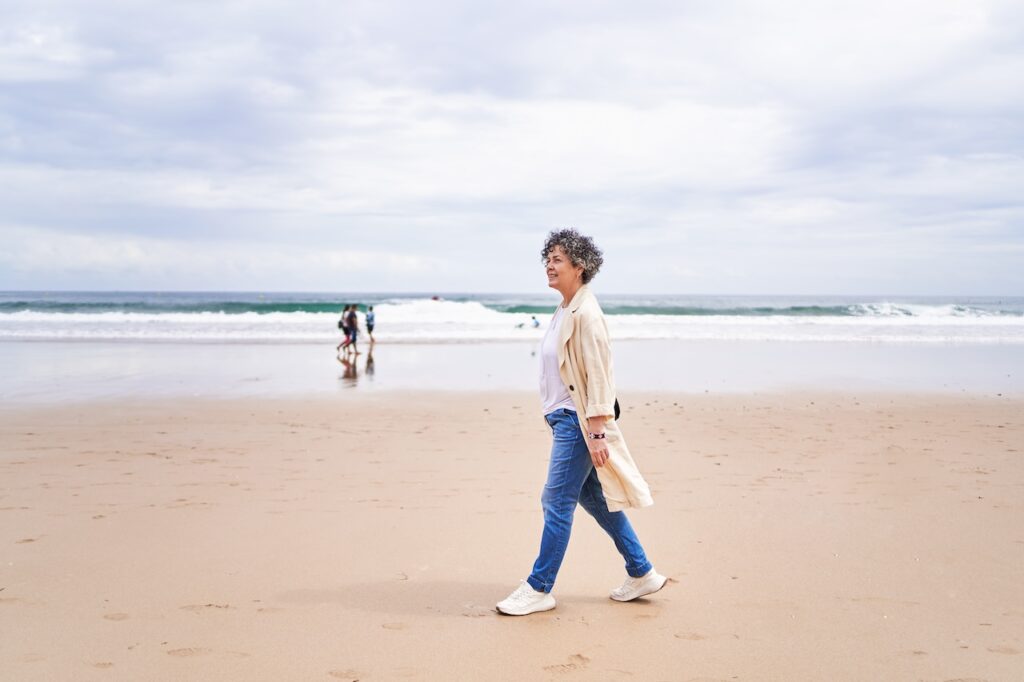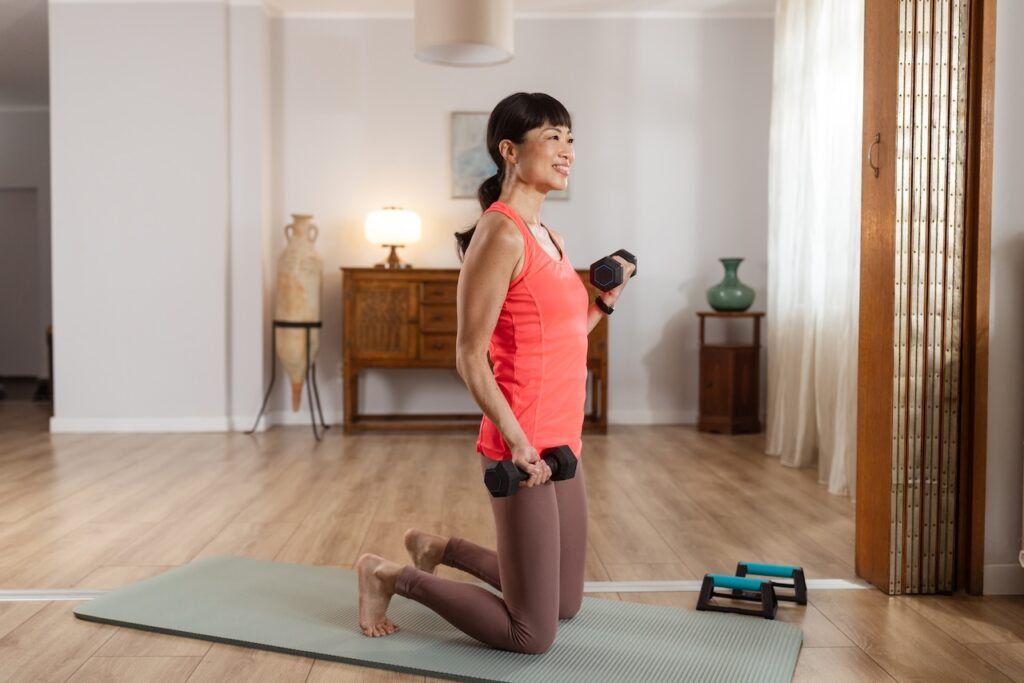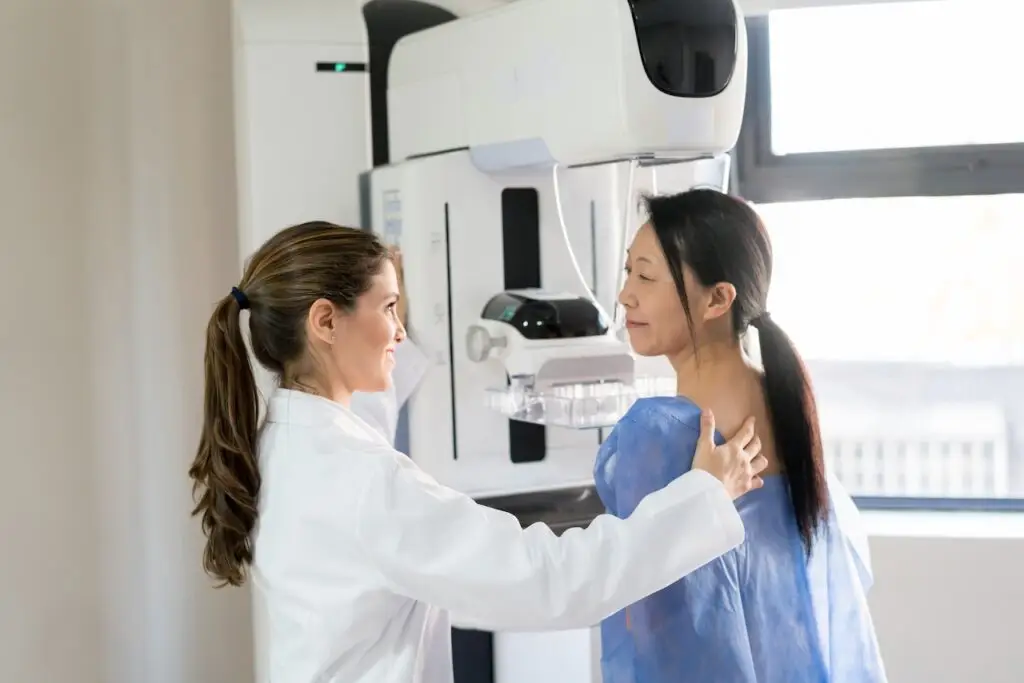In our recent webinar featuring Dr. Jennifer Ligibel, a Senior Physician in the Breast Oncology Center at Dana-Farber Cancer Institute, she discussed the role physical activity plays in improving the quality of life and treatment outcomes after a breast cancer diagnosis.
Dr. Ligibel is a leading expert in exercise oncology and has built a comprehensive clinical Healthy Living Program for patients at the Dana-Farber Cancer Institute to enhance patients’ quality of life during and after treatment.
Watch the full replay of the webinar below or continue reading for highlights on the role exercise plays while you’re in treatment.
Q: What role could exercise play in managing side effects during treatment?
A: This is a place where the evidence is incredibly strong. A couple of years ago, I led a panel in a group called the American Society for Clinical Oncology. They put together these evidence reviews of different trials conducted and then create guidelines for patients and providers. This guideline focused on people [who] were undergoing neoadjuvant or adjuvant chemotherapy, with or without radiation, chemotherapy by itself, or in combination with HER2-directed therapy immunotherapy, and other types of treatments.
Looking at hundreds of trials, the results were incredibly consistent. Exercise reduced fatigue for people throughout their chemotherapy and radiation and helped strengthen their cardiorespiratory fitness. For breast cancer in particular, exercise reduced anxiety and depression so there are very clear benefits of exercise during treatment.
Evidence-based guidance powered by NCCN Guidelines®
Personalized treatment plans shaped by the latest oncology standards—tailored to your diagnosis.
Get started
View your personalized treatment plan in the Outcomes4Me app
Use your diagnosis to unlock personalized NCCN Guidelines®-aligned recommendations.
Continue in app
Q: What’s the best way to balance exercise with extreme fatigue from treatment?
This is always one of the things that seems counterintuitive. Not that long ago, we told people they should rest during treatment. We found that wasn’t true because what ends up happening is a decline in muscle mass. Muscle mass is lost so quickly when people are inactive and when muscle mass declines, they become deconditioned. It makes it much harder to build muscle and become active again. People living with cancer really need to try to stay active and it’ll look different depending on where you are with your cancer.
When you have fatigue, it’s important to think about what parts of the day you have the most energy. You can start slow by going for a walk around the block and then try building up from there. The evidence is really clear that participating in structured exercise reduces and prevents fatigue, so anything you can do is better than nothing. Start slowly and pay attention to your body to determine what kind of activity you can incorporate based on the symptoms you’re having from treatment or from the cancer itself.
Q: Are there certain exercises that are better suited for patients with advanced breast cancer?
A: When we gathered the evidence for the ASCO Guidelines a few years ago, we felt like we couldn’t say a lot about exercise in individuals living with advanced cancer. That really changed with a presentation at the San Antonio Breast Cancer Symposium from over a year ago.
This was a large effort led by a group in Scandinavia, by Dr. Anna May and her team. They enrolled more than 300 women living with advanced breast cancer across 8 different countries and randomized them to a program that included both strength, training, and aerobic exercise. Patients went to either a clinic at their hospital, a local physical therapy center, or a gym where they worked with a specialized trainer. This study showed that exercise had a huge benefit for these patients. It improved their quality of life, significantly reduced their fatigue, and had a number of other benefits for patients living with advanced breast cancer across treatments. So this really showed the benefit of exercise for patients living with advanced breast cancer.
Now, bone metastases can be complicated, especially in weight-bearing places like the hip, thigh, or back. If there’s twisting or heavy weight-bearing, it could potentially predispose you to fracture, especially if you haven’t had a lot of bisphosphonate or other bone-preserving treatments.
There is a group that put together a guideline about how to approach exercise in patients who are living with bone metastases. They say exercise is certainly not contraindicated, but you want to be careful with things like yoga where you’re doing a lot of twisting. You want to be mindful about the weight you put on a bone that may be compromised, especially if it’s your hip or thigh.
If you’re living with advanced cancer and have bone metastases, I recommend you talk to your doctor and potentially seek out a specialist to help you modify exercises. Walking is almost always safe as long as it doesn’t cause harm. Aerobic exercises like swimming and cycling also tend to be safe for most people, even for those living with bone metastases. In terms of strength training, you may need to be more selective depending on where the metastases are.
Q: Does exercise help improve treatment outcomes?
A: This is a huge area of interest. As we know, these drugs have a lot of side effects and if you have a lot of side effects, you’re less likely to keep taking them. There is a lot of interest in looking at what the rates are of continuing on an aromatase inhibitor for the full duration that’s recommended and if you’re taking part in an exercise program or not.
We don’t have that evidence yet, but all of the preliminary findings suggest that exercise helps people tolerate their medicines better. We just want to make sure that what we are seeing is consistent with what the persistence with the medicines is over time.
Download the Outcomes4Me app for tips and resources about how to navigate your cancer care with confidence.
Personalized support for real care decisions
Understand your diagnosis, explore clinical trials, and track symptoms--all in one place.
Get started
Compare treatments, prepare for appointments, and track side effects—all in the app
Built for your diagnosis, Outcomes4Me gives you the tools to make confident, informed decisions—right when you need them.
Continue in app






